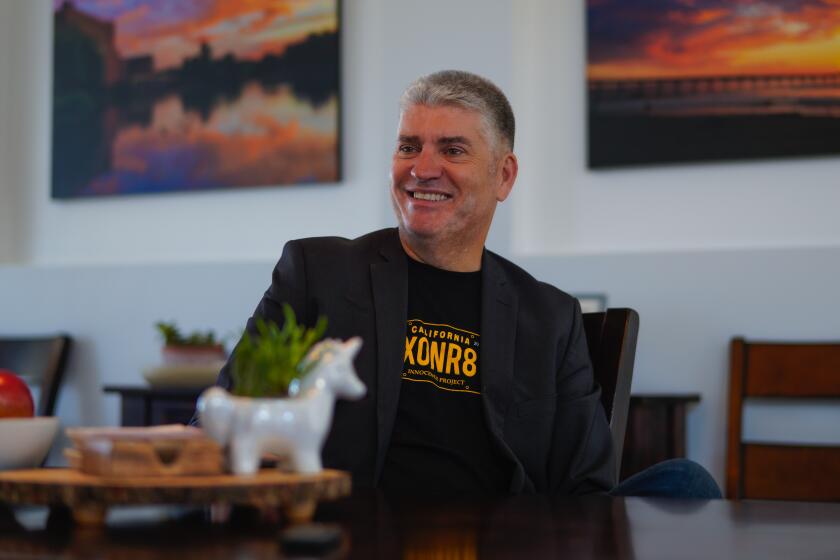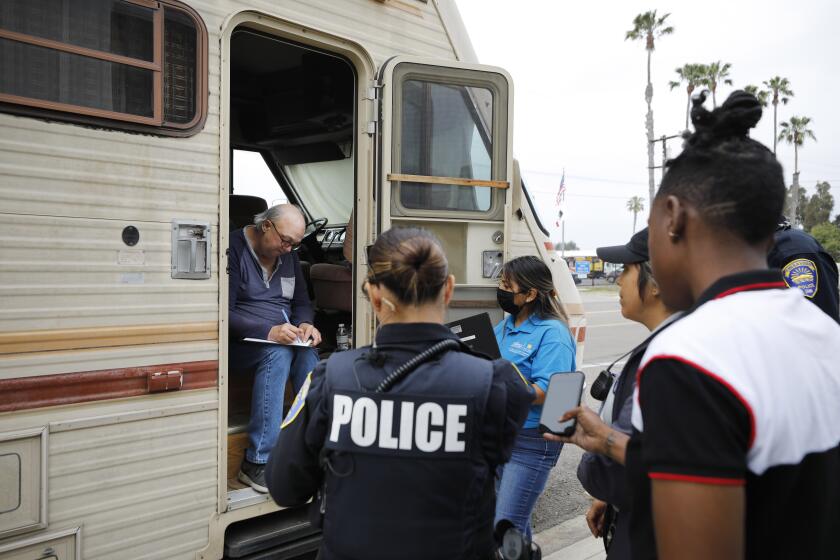Drug lord not expected in U.S. for years
Mexican prosecutors likely will try ‘El Chapo’ Guzman before U.S. gets a chance
It will probably be at least several years before Joaquin “El Chapo” Guzman Loera, one of the world’s top drug lords, sets foot again on U.S. soil.
Guzman, the highest-profile leader of the Sinaloa cartel, was arrested Saturday in Mazatlan, Mexico, after authorities hunted him for 13 years. He faces charges in that country and the United States, where he has been indicted in places such as San Diego, Arizona, Illinois and New York.
But some San Diego attorneys with experience in extradition cases said Monday it would take at least 18 months before Guzman could be brought across the border to face charges here. And that’s only if the Mexican judicial system chooses not to try him first.
“He owes Mexico a lot,” said Jan Ronis, a San Diego defense attorney who has represented Mexican drug kingpin Benjamín Arellano Félix in court, as well as a woman believed to be Guzman’s daughter.
“Mexico has plenty of reasons to keep him,” Ronis said of Guzman. He said given Guzman’s reputation and the time it took to capture him, Mexican authorities could view his prosecution there with a sense of “national pride.”
Guzman is being held at the maximum-security Altiplano penitentiary in Mexico State.
A Mexican official with knowledge of the extradition process for drug kingpins said Guzman would likely be expected to serve the outstanding 12 years of a 20-year prison sentence that was previously handed down against him. The remaining portion stemmed from his prison escape in a laundry cart.
In addition, Guzman faces new charges stemming from a 2009 cocaine-trafficking case and other alleged illegal activities linked to the Sinaloa cartel, according to the official, who requested anonymity because he wasn't authorized to discuss the case publicly.
On Monday, the Mexican Attorney General's Office in Mexico City had not formally released a list of the charges pending against Guzman. Mexican news reports said there are at least a half-dozen outstanding warrants for the drug lord's arrest, including those issued in the states of Jalisco, Nayarit, Mexico, Mexico City and Colima.
Guzman, whom the U.S. Treasury Department has dubbed “the world’s most powerful drug trafficker,” was arrested along with an associate Saturday morning in an oceanview condo building. His Sinaloa cartel's smuggling operations extend across the U.S. and as far away as Africa, Europe and Australia.
Ronis said the extradition process can be long and complicated. He said it took nine years in Arellano’s case, but recent efforts have streamlined the process for many cases, getting it down to roughly 18 months.
John Kirby, a San Diego defense lawyer and former assistant U.S. attorney, said each of the districts that want to prosecute Guzman would have to submit a separate request. He said the Mexican legal system provides many opportunities for defendants to appeal.
Kirby said a conservative estimate in Guzman’s case is that extradition could take three to five years.
Both attorneys acknowledged that Mexican authorities could chose not to prosecute Guzman there, opening the door for the U.S. to take the lead. For example, they could determine that holding and prosecuting Guzman in his home country, where some view him as an icon or a legend, would be too problematic.
“It comes down to a political choice,” Kirby said. “We have to see what (Mexican President Enrique Pena Nieto's) administration will do. They could say, ‘No, you don’t get to have him until he’s dealt with us.’”
Staff writer Sandra Dibble contributed to this story.





